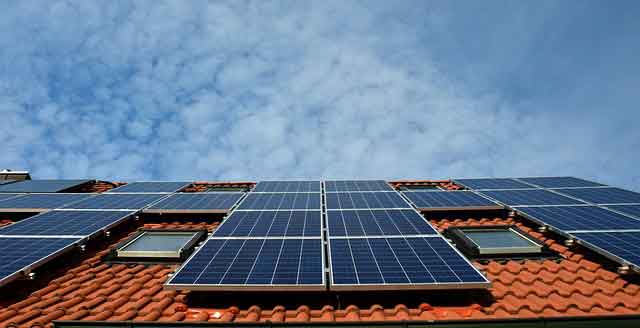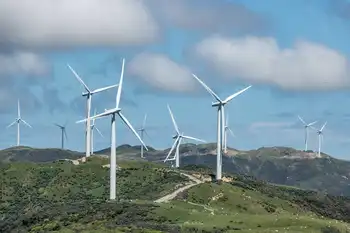UK onshore windfarms receive 1 Billion Pound boost
By Industrial Info Resources
CSA Z463 Electrical Maintenance
Our customized live online or in‑person group training can be delivered to your staff at your location.

- Live Online
- 6 hours Instructor-led
- Group Training Available
Three banks, The Royal Bank of Scotland, Lloyds and BNP Paribas Fortis, have begun working with the European Investment Bank (EIB) on a programme to lend up to £1 billion to onshore windfarms during the next three years.
The funding, announced by Department for Energy and Climate Change (DECC), is part of the additional £4 billion of EIB lending to support UK energy projects announced earlier this year. According to the government, the funds will help get building started for onshore wind projects that have been hit by the credit crunch, particularly small and mid-sized windfarms.
Firms are also being encouraged to apply for DECC cash to develop offshore wind technology. Up to £10 million in grants will be available, representing the second round of cash for the development of offshore wind technology. The first £10 million, under the Low Carbon Energy Demonstration capital grants scheme, was launched at the end of May, and is specifically aimed at advancing the demonstration of new components and technologies that will speed up the deployment of large-scale multi-megawatt wind turbines.
DECC also confirmed that alongside those grants, more than £6 million is being allocated to help Vestas Wind Systems' Isle of Wight facility. Danish company Vestas Wind Systems A/S, announced that the UK's only large wind turbine manufacturing plant was on track to close July 31 with the loss of almost 600 jobs. The government came under fire for not intervening.
Now, DECC has said that, subject to agreement on suitable grant offer conditions, it will make the £6 million offer for Vestas Technology UK Limited's research and development centre on the Isle of Wight. Whether or not the funding will halt the closure of the manufacturing facility remains unclear.
"Earlier this month we laid out a transition plan to a low-carbon economy that included a massive expansion of green wind energy," said Energy and Climate Change Secretary Ed Miliband. "The resources we are announcing back up our plans with clear actions to ensure we deliver. The European Investment Bank funds will help the building start on consented windfarms that could provide 1 gigawatt of electricity, enough to power more than half a million homes."
Miliband added: "The money for the development of offshore wind manufacturing will help us generate green jobs on top of our success as the leading country in the world for the generation of offshore wind. Alongside these proposals, we are reforming planning laws, finding new ways of working with local communities and are determined to persuade people that we need a significant increase in onshore wind as part of the UK's future energy mix. This is essential for the generation of renewable energy and for Britain to have an industrial future in the production of onshore wind."
EIB Vice President, Simon Brooks, commented, "The development of the UK's wind energy capacity will support the European Union's and national targets for renewable energy generation. As well as helping to reduce greenhouse gasses, it will strengthen the security of energy supplies. This initiative underlines the EIB's long involvement as the EU's financing arm in the UK's energy sector and reinforces efforts to reduce the impact of climate change."
According to Ian Pearson, MP, Economic Secretary to the Treasury: "The £4 billion of lending to the energy sector that we announced in the Budget is just part of the £10 billion of lending that we hope to see coming into the UK economy from the EIB this year, nearly three times last year's total."











